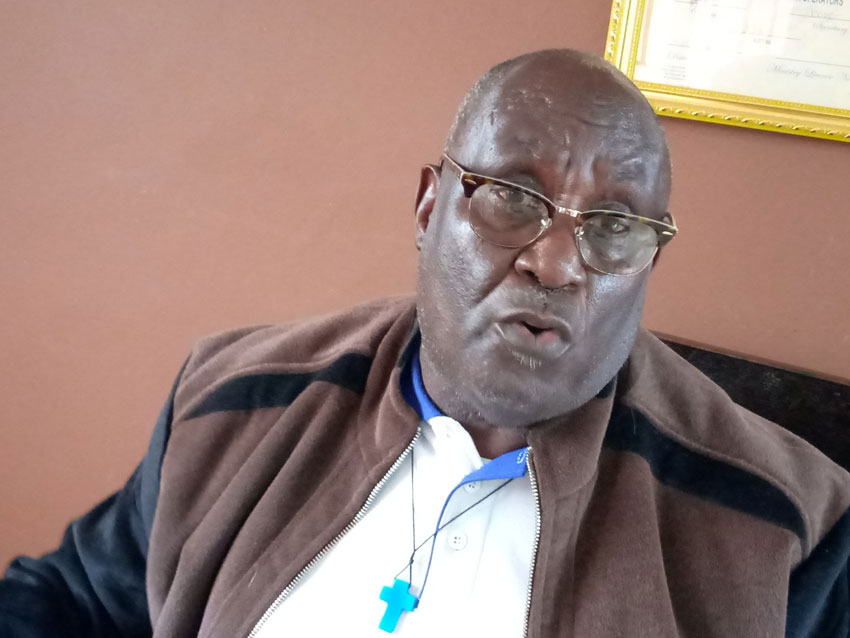Information concerning Ugandans having received suspected fake COVID-19 vaccines is an indicator of a state failing to police social service delivery.
The interpretation of a private sector-driven economy by the government needs to be re-visited to appreciate that social services like Health and Education can’t be left to the private sector for the very reason of profit maximization being preferred over the quality of life and welfare.
To understand how toxic the private sector-led economy can be in absence of regulation from a strong arm of government, just take look at how private health facilities are pricing treatment of COVID-19, albeit the reasons they advance. Again, examine how the prices covid treatment drugs have escalated as if the market is run by a cartel.
Ugandans seem to be in a hopeless situation of an absent government when it comes to the welfare of its citizens but very present in political and military administration.
For instance, Uganda’s wage bill on public administration over ailing and underfunded public facilities fails logic in all ways. For the last two Financial Years 2019/20 and 2020/21, the government has allocated over Shs 600bn ($168.6m) on Public Sector Management.
This investment is a reflection of what the public is currently seeing in the health sector concerning staffing and remunerating health workers. Because the market dictates, most health workers have sought greener pastures in private practice.
Conversely, according to reports by Alliance for Election Campaign Finance Monitoring (ACFIM), Uganda’s biggest problem is its politics.
Maintaining the political machinery under President Yoweri Kaguta Museveni is at the expense of the welfare of Ugandans. According to the findings by ACFIM, most of the public resources are invested in the burgeoning political administration.
Consider the resources government spends on maintaining the bloated parliament, cabinet, advisors, Resident District Commissioners, Local Council leaders with a minimum return on investment.
Government’s expense on administrations only
For instance, over Shs158bn ($44.2m) is going to be spent annually on the monthly remuneration of the 11th Parliament that has 527 members. On this add the 130 advisors of the president on average, each of the advisors earns a gross monthly salary of Shs 2.2 million ($616) totalling over Shs 2.8 billion ($784.3 thousand) annually.
Currently, according to the records from the President’s office, Uganda has 145 Resident District Commissioners (RDC) and 87 deputy RDCs Every month, RDCs earnShs2.2m ($616), while their deputies earn Shs1.8m ($504) cumulatively amounting to Shs3.8 bn ($1.6 m) and Shs163.4m ($45.7 thousand) respectively annually.
District chairpersons countrywide earn Shs1.5m ($420) monthly minus allowances which translates into Shs2.62bn ($732.882) spent annually. The figures are higher for Municipal and City mayors plus the 82-member cabinet remunerations the expenditure on political offices burgeons.
Budget allocations to security even when the country is considerably at peace with most of its neighbours in the region presupposes whose priorities are on entrenching regime survival through military presence and control of masses including quelling political dissent and alternative voices. Politics aside; Where is the government when Ugandans are vaccinated with fake COVID vaccines? Where is the government when Ugandans are facing an oxygen crisis?
Where is the government when prices for COVID-related treatment drugs including the indigenous innovation of covidex, keep rising like it’s a stock market of cartels? Where is the government when critically ill covid patients are turned away from hospitals because they have run out of hospital beds and ICU facilities?
The government’s silence, while ruthless owners of private hospitals are charging exorbitantly to treat COVID, is a piece of clear evidence that the welfare of Ugandans is not among the priorities. Even in isolated circumstances when the government is present in the welfare of its citizens, it’s always playing catch up after deafening public noise. (The best example is the Covid-19 relief funds).
According to Makerere University don Prof Mwambutsya Ndebesa, Uganda is such a state because of a political system that is underpinned on patronage which makes it very impossible to fighting corruption which is the root cause of the unfair treatment by the state.
Do you have a story in your community or an opinion to share with us: Email us at Submit an Article







